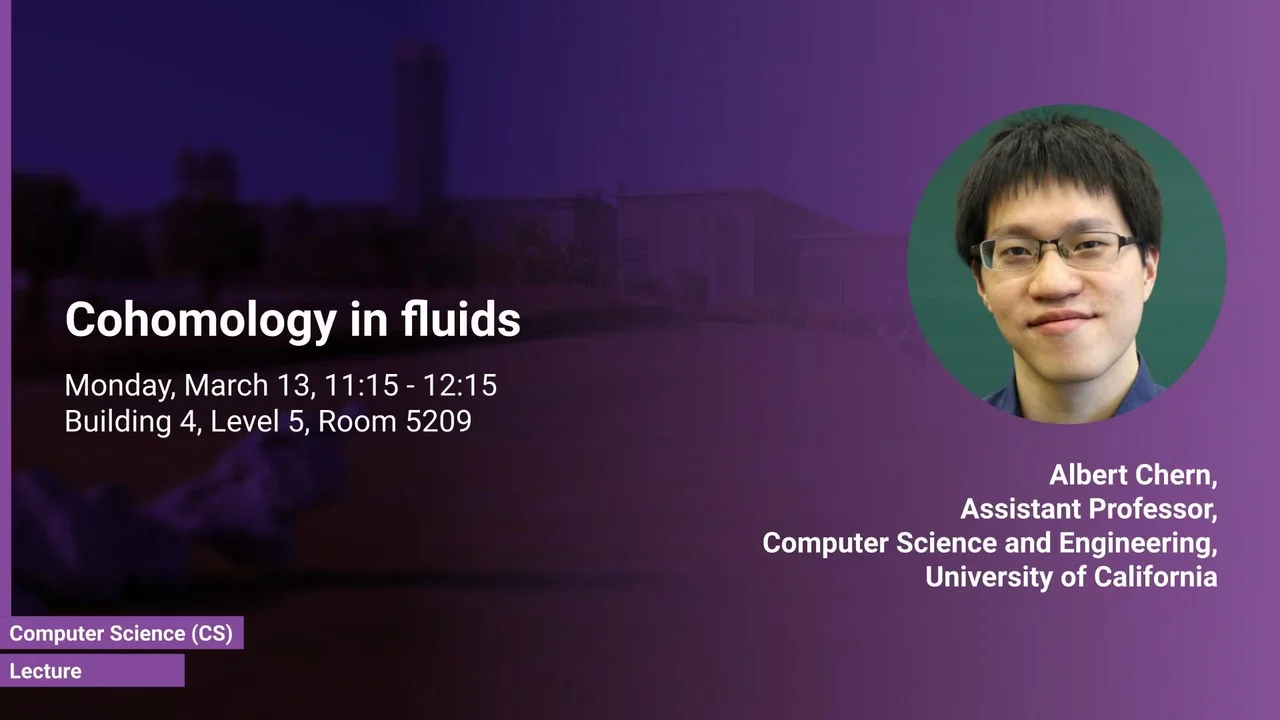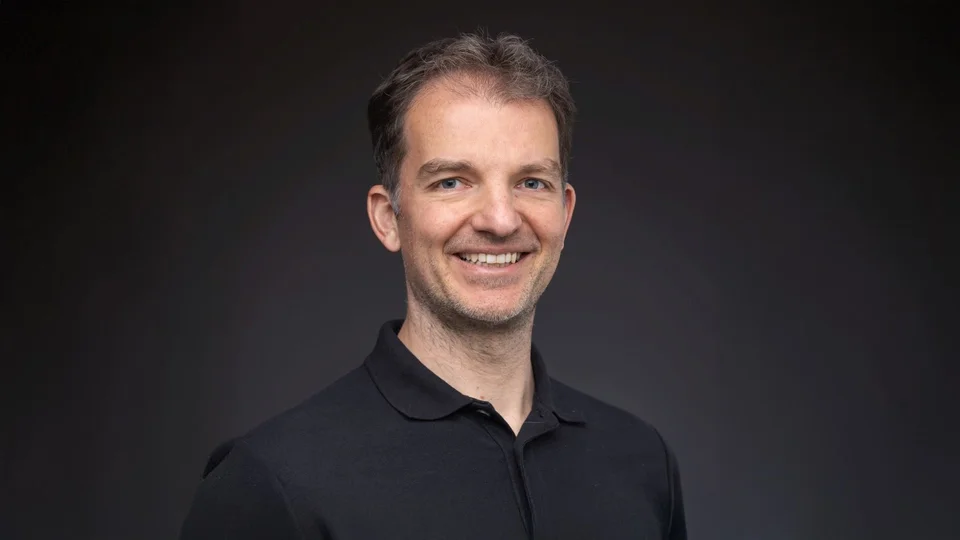
Cohomology in fluids
We present a topological analysis of the vorticity formulation in describing fluid dynamics. Despite its widespread use in fluid mechanics, this formulation is insufficient at describing fluid dynamics on a non-simply-connected domain. What is missing is an equation of motion for fluid's cohomology component, which exhibits fascinating dynamics previously under explored. Using geometric language, we derive the new equation of motion and establish new conservation laws, as Casimir invariants in Hamiltonian mechanics, for fluids on domains with general topology. Significantly, we present the first physically correct vortex method on curved surfaces with genus and boundaries.
Overview
Abstract
We present a topological analysis of the vorticity formulation in describing fluid dynamics. Despite its widespread use in fluid mechanics, this formulation is insufficient at describing fluid dynamics on a non-simply-connected domain. What is missing is an equation of motion for fluid's cohomology component, which exhibits fascinating dynamics previously under explored. Using geometric language, we derive the new equation of motion and establish new conservation laws, as Casimir invariants in Hamiltonian mechanics, for fluids on domains with general topology. Significantly, we present the first physically correct vortex method on curved surfaces with genus and boundaries. Finally, by utilizing covectors, we demonstrate a simple trick to modify traditional velocity-based fluid solvers into a vortex method without the need for handling evolving vorticity and streamfunctions. The talk also provides an overview of geometric fluid mechanics and highlights the potential for further discoveries.
Brief Biography
Albert Chern is an Assistant Professor in Computer Science and Engineering at University of California, San Diego. Chern received his PhD in applied and computational mathematics at Caltech in 2017 and worked as a postdoctoral research in mathematics at Technical University of Berlin prior to the current position since 2020. His research interest lies in differential geometry and computational partial differential equations and their applications to fluid dynamics, geometry processing and computer graphics.

